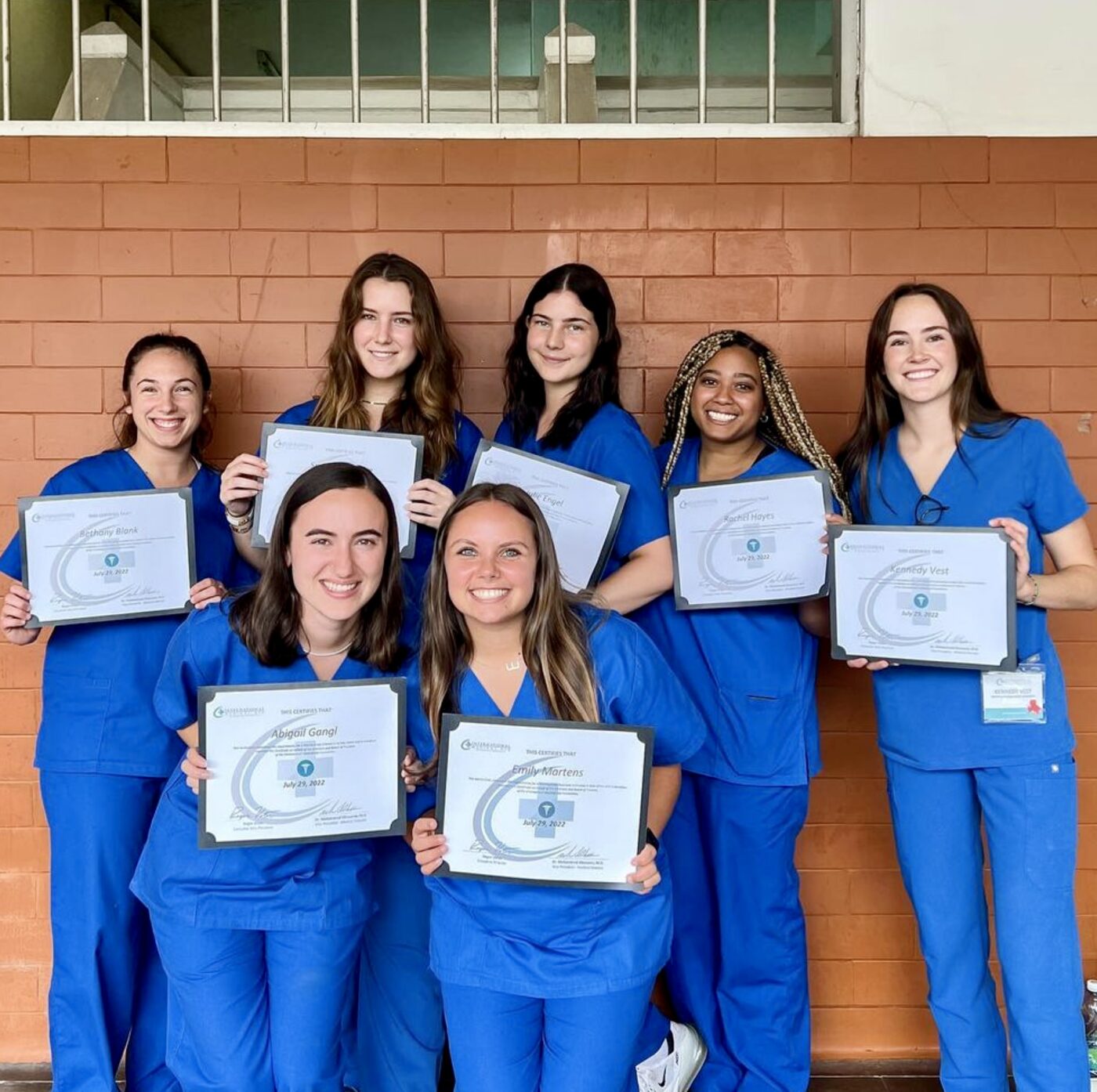Pre-nursing internships can be a vital stepping stone for aspiring nurses. These immersive programs give students, like yourself, a first-hand look at the profession, allowing them to gain valuable experience while confirming their career path.
During your internship, you’ll get to put the knowledge you’ve gained in the classroom into practice and develop the skills that form the foundation of patient care.
Here’s what you might expect during your pre-nursing internship and how it can benefit you as you move toward becoming a registered nurse.
Hands-On Patient Care Experience
One of the most exciting aspects of a pre-nursing internship is the opportunity to perform basic patient care tasks. Under the supervision of registered nurses, you might assist with bathing, dressing, and feeding patients. You may also be involved in some pre-nursing internship daily tasks like monitoring vital signs, helping patients with mobility, and supporting them with activities of daily living.
While these tasks may seem simple, they’re essential for a nurse’s work. Performing them during your internship helps build your confidence in basic nursing skills. Moreover, during these interactions, you’ll also develop your bedside manner and compassion—both crucial for offering excellent patient care.
Furthermore, these tasks can help improve caring when dealing with patients. Research on the caring ability of nursing students, pre- and post-internship, showed a statistically significant rise (P<0.05) in the caring ability, cognitive, and patience scores of nursing students.
Observing and Shadowing Registered Nurses
A significant part of your internship will involve observing and shadowing experienced nurses. You’ll see first-hand how they perform assessments, make critical decisions, administer medications, and collaborate with other healthcare team members. This direct observation enhances your understanding of the skills and knowledge you’ve been learning in the classroom.
Additionally, through shadowing nurses, you gain an appreciation for the complexities of the nursing role. You’ll see how nurses balance technical skills with empathy, critical thinking, and patient advocacy for optimal care. These are just some of the key skills gained during a pre-nursing internship.
Diverse Clinical Settings Exposure
Many pre-nursing internships include rotations through different units within a hospital or healthcare setting. This allows you to experience various areas of nursing, such as medical-surgical units, the emergency department, pediatrics, or intensive care. Working in these different environments can help you understand your interests in the wider nursing field.
You’ll also witness how nursing care priorities differ based on the type and understanding of patients. This exposure is a fantastic way to explore potential specialties and can help guide your later career choices after graduation.
Clinical setting exposure can also help boost the student’s commitment to nursing. A study on the effect of pre-nursing internship on professional commitment showed that 77.2% of students were happy to study nursing, and 81.2% wanted to keep working as nurses. Therefore, if you want to learn the ins and outs of nursing and if it’s the right career, then getting hands-on patient care experience in your pre-nursing internship is a good place to start.
Networking and Mentorship Opportunities
During your internship, you’ll encounter a range of healthcare professionals, from seasoned nurses to technicians and allied health staff. This provides a natural networking opportunity. Connecting with these professionals can help you expand your understanding of the healthcare landscape and form valuable connections.
You may also find a mentor among the nurses you work with. They can offer guidance, personalized advice, and support as you navigate your nursing ambitions. Moreover, mentors often become a great resource even after your internship ends.
Professionalism and Ethical Considerations
Pre-nursing internships also reinforce the importance of professional conduct and ethical behavior in healthcare. You’ll learn about patient confidentiality, safeguarding dignity, and adhering to high moral standards. Understanding these principles is crucial to becoming a trusted and respected member of the nursing profession.
Internships can provide you with an opportunity to observe how nurses uphold these values in real-world situations. Instructors and supervisors can also guide and help you refine these professional skills. For instance, a report on the professionalism of nursing internship students showed that those who regularly participated in their internship programs had a higher professionalism score than those who didn’t (P-value = .0001).
As an intern, you’ll likely encounter ethical dilemmas that will force you to consider complex situations in the context of patient-centered care. These experiences involve end-of-life care, respecting patient autonomy, or navigating resource limitations. That said, this exposure will help you develop strong decision-making skills and a robust moral framework for your healthcare career.
Final Thoughts
A pre-nursing internship is a fantastic way for aspiring nurses to bridge the gap between theory and practice. These immersive experiences build hands-on skills, give you a realistic view of the profession, and help you connect with other healthcare providers.
As you complete your nursing degree, the experience gained during an internship will truly set you apart and make you a more confident, well-rounded candidate when it’s time to enter the workforce. If you’re serious about pursuing a career in nursing, seek out pre-nursing internship programs in your area and explore the world of healthcare that awaits you.




